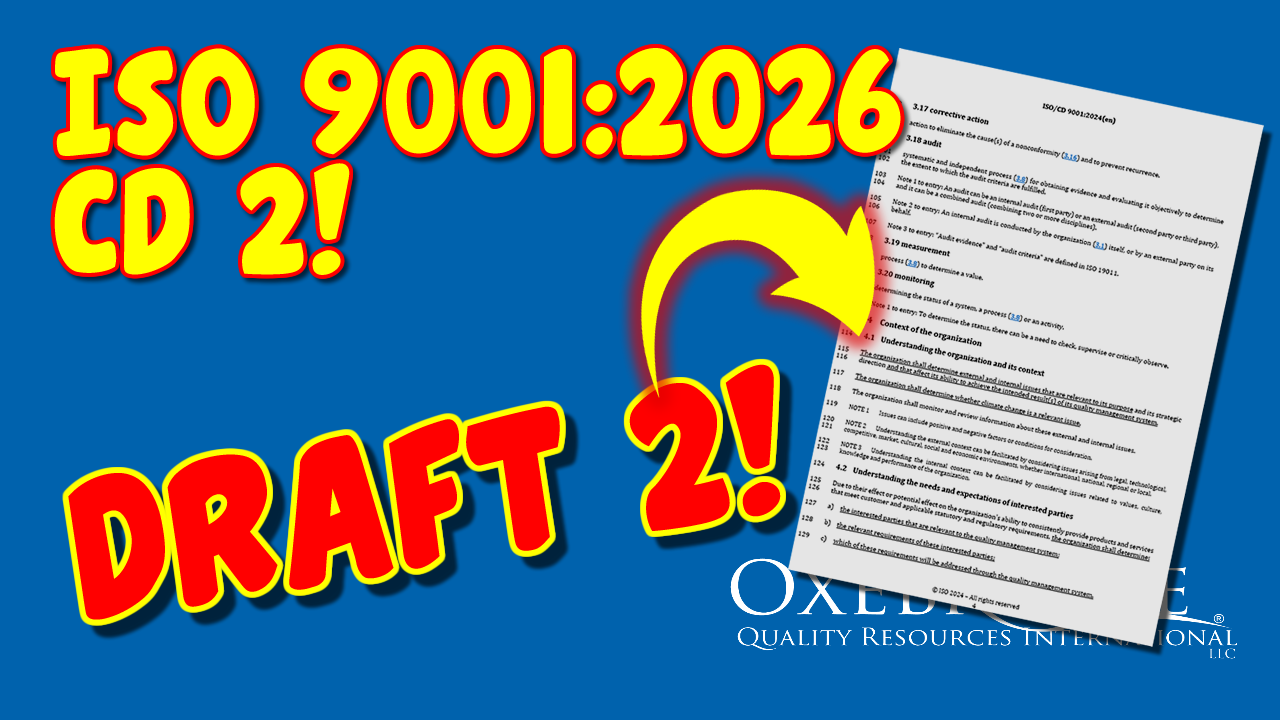[This is an update on a previous report.]
Previous reporting by Oxebridge indicated the FDIS 0f ISO 9001:2015 had been approved with a 97% majority; the final figures show an even higher majority, with 75 nations voting to approve, 0 disapprovals and 5 abstentions. ISO calculates the approval rate only by measuring approvals vs disapprovals, meaning technically the FDIS passed with 100% approval; however, calculating abstentions (a practice done by other organizations) would show that it was approved with a lower figure of 94% of member nations.
The five member nations that abstained were Canada, Honduras, Kazakhstan, Luxembourg, and Qatar.
Figures reported previously were for the FDIS ballot on ISO 9000, not 9001. For that standard 56 out of 58 voting nations approved the draft. Two nations opposed the ISO 9000 FDIS: Finland and Italy. Three nations – Kazakhstan, Luxembourg and Qatar – abstained.
The vote is a victory for TC 176 which has been plagued with criticism over the standard and accusations that ISO deviated dramatically from its own procedures and directives in order to meet a publication date established years ago, prior to the development work beginning. Controversies over the standard included the failure of TC 176 to develop Quality Management Principles before beginning work on the standard, dramatic departures from the original Design Specification, a publication deadline that drove the actions of the TC and led them to ignore member nations comments. and the imposition of “Annex SL” language which was developed not by TC 176, but by a bureaucratic body within ISO called the Technical Management Board.
Some within the US TAG to TC 176 had argued against the standard on the Design Specification deviations, as the specification called for the standard to be easily understood. The final standard has been criticized for being complicated and vague, requiring publication by ISO of a number of supporting Annexes, interpretation guides, and work on a full implementation guidance document to be released as ISO TR 9002.
The final approval by the US TAG saw the critics within the TAG defeated by it leadership, which pressed for approval. Oxebridge has argued that the leadership of the US TAG is comprised nearly entirely of consultants who stand to benefit by offering services and publishing books which decipher the confusing standard.
Christopher Paris is the founder and VP Operations of Oxebridge. He has over 35 years’ experience implementing ISO 9001 and AS9100 systems, and helps establish certification and accreditation bodies with the ISO 17000 series. He is a vocal advocate for the development and use of standards from the point of view of actual users. He is the writer and artist of THE AUDITOR comic strip, and is currently writing the DR. CUBA pulp novel series. Visit www.drcuba.world








